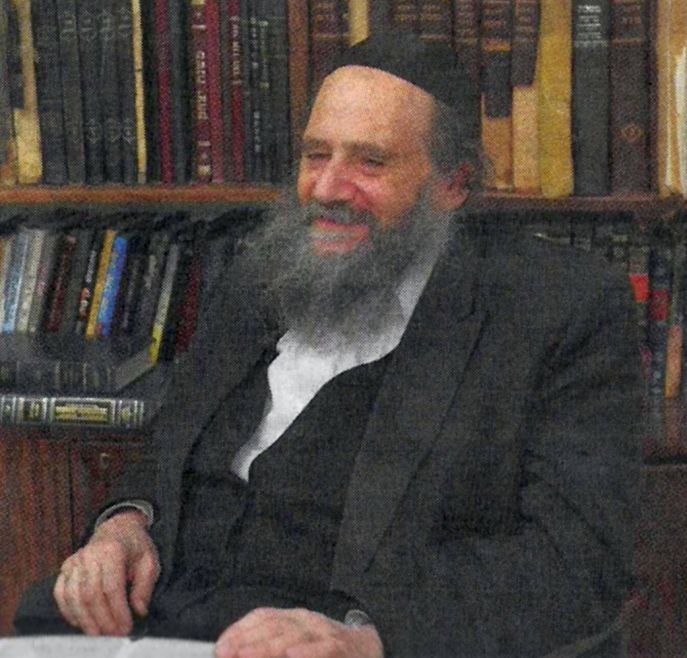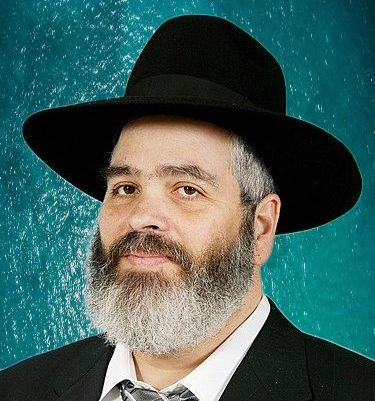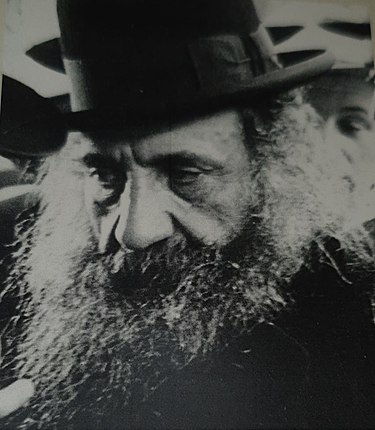  |
|
| |||||
This Google Custom Search looks only in this website. A Conversation with HaRav Chizkiyohu Mishkovsky shlita
"Our situation is far from simple."
These were the opening words of HaRav Chizkiyohu Mishkovsky.
How much did the Rosh Yeshiva warn us through the words of the gemara: King Yehoyokim was told that Yirmiyohu had written a holy book.
"What does he say," he asked. "It is a Book of Lamentations. It has written: How was it [Yerushalayim] sitting thus in desolation?
I am the King: I don't care that she sits in desolation.
She weeps copiously at night, her tears lingering on her cheek.
I am the King: She weeps. What do I care? I am protected; it doesn't bother me.
Yehuda is exiled in poverty and from much toil.
She is exiled — but I am ensconced in my home. Why should I care? What else is written there?
The roads of Zion mourn. No one comes at the appointed times.
I am the King.
Her enemies have become the heads. And you will no longer be king.
What?! What did Yirmiyohu say? He darkened all the sheimos and burned the sefer.
Something does not jibe with the facts. They told us that the army took over northern Gaza and is controlling the entire area, banishing hundreds of thousands residents to southern Gaza. Reports tell that most of the buildings in the captured parts were destroyed, while those that still stood were not fit for habitation.
They also tell us about the food shortage, the humanitarian crisis and other similar stories of the conditions in Gaza, feeding the imagination with scenes of devastation, large sections deserted of population and buildings on the verge of collapse at any moment. In short, Dresden, Germany, after the War.
The Israeli army left parts of Northern Gaza, and the photos which the local residents took reached the media. Pictures taken at the refugee camp of Jabalya show business as usual.
The local market is a replica of an Israeli open market. Thousands of people swarming through the side streets; vendors at their laden stalls, hawking their varied merchandise to those milling around. The buildings in the background seem none the worse for the war. In short — a pastoral, bucolic scene of a city functioning very normally.
This major series of articles about the heroic rosh yeshiva HaRav Moshe Schneider whose talmidim, both Ashkenaz and Sephardic, went on to great achievements, was first published in 1994.
Part VII — Conclusion
Rav Schneider was truly among the main disseminators of Torah in our times. An unusual and dynamic individual who transplanted Torah and made it flourish in spiritual wastelands where no one believed it was possible, he did the painstaking groundwork that enabled the barren atmosphere in England and France to give way to the dozens of yeshivos, religious institutions and frum communities that are in existence today.
HaRav Schneider was a man whose entire focus was in the yeshivos which he established, and in his love for Torah, for which he lived. In keeping with his modest personality, his accomplishments for Torah were perhaps not fully appreciated in his lifetime. But the love for Torah and mussar which he instilled in his students produced mighty fruits which changed the face of postwar Jewry in Europe and Eretz Yisroel.
He was expelled from Germany as a Polish citizen, but was not able to leave. His son, HaRav Gedaliah, arranged for leading rabbonim in England to pressure the British Home Secretary to allow HaRav Schneider into England. Once there, he again established a yeshiva and worked to disseminate Torah.
Moroccan Youth Come To the Yeshiva
...
Rain and Kinneret Watch by Dei'ah Vedibur
Staff
Our weekly report of the rain and the level of the Kineret -
Winter, 5784.
* * *
Outstanding Articles From Our Archives
Opinion & Comment
by Mordecai Plaut
In preparation for the parsha of matan Torah in Yisro.
The Rambam takes almost 2,000 Hebrew words to discuss the 13 Yesodos of our Religion. Only two of those words are "emes," and only one instance is applied to the Torah as the last of a list of attributes: Vehakol Toras Hashem temimoh, tehoroh, ukedoshoh, emes - it is all the Torah of Hashem that is perfect, pure, holy and true.
A good part of the Torah has nothing to do with the category of truth and falsehood. The mitzvos and the instructions for fulfilling them, for example, are not true-or-false - at least in the way those terms are usually applied nowadays. It is certainly temimoh, tehoroh, ukedoshoh that we must keep Shabbos, and it is true that we must keep Shabbos, but the Commandment, "Remember the Shabbos," is an imperative statement that is not related to truth and falsehood in a simple, conventional sense.
In our parshas Beshalach there is the Shiras Hayam which is an inspiring creation, but how true is it?
"They went down to the depths like a stone." "Send Your wrath and consume them like straw." "They plunged like lead in the mighty waters." Seeing these on our own, we would probably have interpreted them as figures of speech, poetic flights expressing the same core fact that Hashem drowned the Mitzrim in three varied, elegant ways.
Opinion & Comment
by Rabbi Daniel Yaakov Travis
About the weekly songs of Shabbos, in honor of Shabbos Shirah.
Permission to Sing
David was a simple Jew, neither learned in Torah, nor particularly meticulous in mitzvos. In fact, he really had only one major merit: he was the chazon on Shabbos. Every week, he would lead the Shabbos prayers, bringing the members of the community to tears with his beautiful voice.
Rav Shmaya, one of the great talmidei chachomim of his city, was not so happy about David's singing. Every Shabbos, he would recite Shacharis and Musaf at daybreak, eat a quick seudah, and then return to the synagogue to learn for the entire afternoon. David's singing lengthened the prayers and disturbed Rav Shmaya's learning.
One day, David was in a particularly elevated mood, and his prayers were even longer than usual. David was singing an exquisite tune for Kedushoh and had the entire congregation captivated with his voice. Each word ascended from his mouth with a beautiful melody; his listeners were convinced that an angel must have been singing with him.
David went on and on and on, until Rav Shmaya just couldn't take it anymore. He banged on the table where he was sitting and cried out, "How long will my Torah learning be interrupted!" A hush fell over the congregation, and David finished quickly.
That Shabbos afternoon, Rav Shmaya started to feel ill. After Shabbos, he became so sick that the doctors of the town diagnosed his condition as critical. Rav Shmaya sent word to the rov of the town asking him to visit so that he could try to understand why this was taking place.
The rov told Rav Shmaya that he thought the illness was connected to stopping David's prayers. As proof, the Rov pointed to the Rema who writes that one is not allowed to protest singing in the Shabbos prayers, even if it disturbs Torah learning (281, 1). Rav Shmaya called David in and apologized profusely for what he had done. David accepted and, within a few hours, Rav Shmaya recovered completely from his sickness.
When David passed away, he was granted permission to visit the shamash in a dream. The shamash saw that David was being honored and in a state of tremendous joy. David said that despite the fact that he had no other merit, he had been granted reward in Gan Eden for his singing of the Shabbos prayers (see Machzik Brochoh [Chida] 281:4-5).
|
|||||




.jpg)


